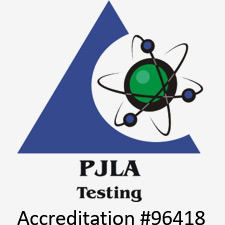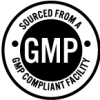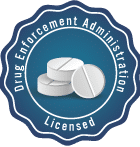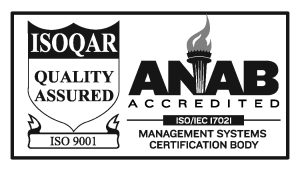Detecting compounds that can be extracted from packaging materials, closure systems, and medical devices is critical for preventing leachables from entering pharmaceutical products. At Jordi Labs, we run extraction studies using techniques like ICP-MS, GC-MS, LC-MS, and liquid chromatography to uncover potentially harmful leachable compounds under worst case scenario conditions. Our extractables and leachables testing supports risk assessment and toxicological evaluation in compliance with Food and Drug Administration (FDA) guidelines and other regulatory bodies. But how exactly is extractable testing carried out?
This article walks through our approach to extractable and leachable studies—from planning to data interpretation—and shows how our methods help manufacturers meet regulatory demands and protect patient health.
What Are Extractables in Pharmaceutical and Medical Device Materials?
Extractables are chemical compounds that can be drawn out of a material under controlled laboratory conditions, often using aggressive solvents, elevated temperatures, or extended exposure durations. These conditions simulate or exaggerate real-world scenarios where chemicals might leach into pharmaceuticals, foods, or biological systems. If you would like to learn more about the basics, please see our previous article: What is E&L Testing?
Understanding the distinction between extractables and leachables is essential: extractables may migrate under lab-induced stress, whereas leachables do migrate under actual usage. Regulatory agencies such as the FDA mandate E&L testing to ensure that contact materials do not compromise the identity, strength, quality, or purity of a drug product.
Jordi Labs’ Methodical Approach to Extractable Testing
At Jordi Labs, extractable testing is a structured investigation. Each study is tailored to the product’s composition, intended use, and regulatory context. Our process unfolds across five key phases:
1. Initial Assessment and Study Design
Our process begins with an in-depth assessment of the product and its use environment. We collect detailed information regarding material composition, contact conditions, duration of exposure, and sterilization methods. This background enables our chemists to model realistic—and worst-case—exposure scenarios.
We then design a customized test protocol that includes:
- Solvent selection (e.g., polar, semi-polar, non-polar solvents)
- Appropriate extraction techniques
- Testing durations and temperature settings
- Analytical methods best suited to the target compounds
When needed, feasibility studies are performed to identify the most effective extraction media and conditions. This ensures scientific relevance and regulatory defensibility.
Once the study parameters are finalized, we begin the extraction phase using carefully selected techniques that match the product’s real-world context.
2. Extraction Techniques
Historically, extractables were evaluated using methods such as soxhlet and reflux extraction, which rely on prolonged heating and large solvent volumes. While still valid, these approaches are time-intensive and resource-heavy.
To improve efficiency, Jordi Labs often utilizes accelerated solvent extraction (ASE). This advanced technique reduces extraction times significantly while minimizing solvent usage. Instruments like the Thermo Scientific EXTREVA ASE can perform multiple extractions in parallel, streamlining workflows and increasing throughput.
3. Multi-Layered Analytical Workflows
Following extraction, samples are processed through analytical workflows tailored to the chemical profiles of potential extractables. These include:
- Volatile organic compounds (VOCs) — Analyzed via gas chromatography-mass spectrometry (GC-MS). Example: residual solvents such as methylene chloride.
- Semi-volatile compounds — Evaluated using GC-MS or liquid chromatography-mass spectrometry (LC-MS).
- Non-volatiles, including polymer additives — Characterized using LC-MS or high-resolution mass spectrometry.
- Elemental impurities — Quantified using inductively coupled plasma mass spectrometry (ICP-MS).
Each workflow is optimized for sensitivity and selectivity, enabling detection and identification at trace levels.
4. Advanced Instrumentation
Instrumentation is the cornerstone of effective extractable testing. Jordi Labs employs a suite of cutting-edge analytical systems:
- GC-MS for profiling volatile and semi-volatile organics
- LC-MS for thermally labile or polar compounds
- ICP-MS for detecting elemental impurities at parts-per-billion levels
For complex samples or unknowns, we leverage high-resolution systems like the Orbitrap IQ-X Tribrid Mass Spectrometer, which offers superior mass accuracy and advanced structural elucidation capabilities.
5. Rigorous Quality Control
To ensure the integrity and reproducibility of results, Jordi Labs incorporates multiple quality control measures:
- Blank samples and negative controls to eliminate background interference
- Spiked samples to validate extraction efficiency and recovery
- Replicates to assess method consistency
- Validated methods aligned with regulatory guidelines
All results undergo meticulous documentation and peer review to meet the expectations of agencies such as the FDA, EMA, and Health Canada.
More Than Testing: Trusted Expertise and Problem-Solving
Our clients—from early-stage startups to global pharmaceutical companies—rely on us not just for our analytical capabilities but for our collaborative approach. For example, one client developing an innovative drug delivery device faced challenges in selecting suitable extraction solvents. By conducting a targeted feasibility study, our team identified optimal conditions that met both chemical compatibility and regulatory expectations.
Beyond project work, Jordi Labs actively advances the field of extractables science through publications, seminars, and contributions to regulatory dialogues. With over 30 years of analytical chemistry expertise and FDA-cited methodologies, we are a reliable partner for your most demanding analytical needs.
Why Partner with Jordi Labs for Extractable Testing?
Extractable testing is far more than a compliance task. It’s a key safeguard in the development of safe, effective products. At Jordi Labs, we combine scientific rigor with client-focused service, delivering precise, actionable insights at every stage of product development.
Whether you’re evaluating a new inhaler, a drug-contacting container, or novel packaging material, our team provides the expertise and tools to navigate regulatory landscapes with confidence.
Contact Jordi Labs today to discuss a customized extractables study tailored to your product, material, and regulatory needs.





